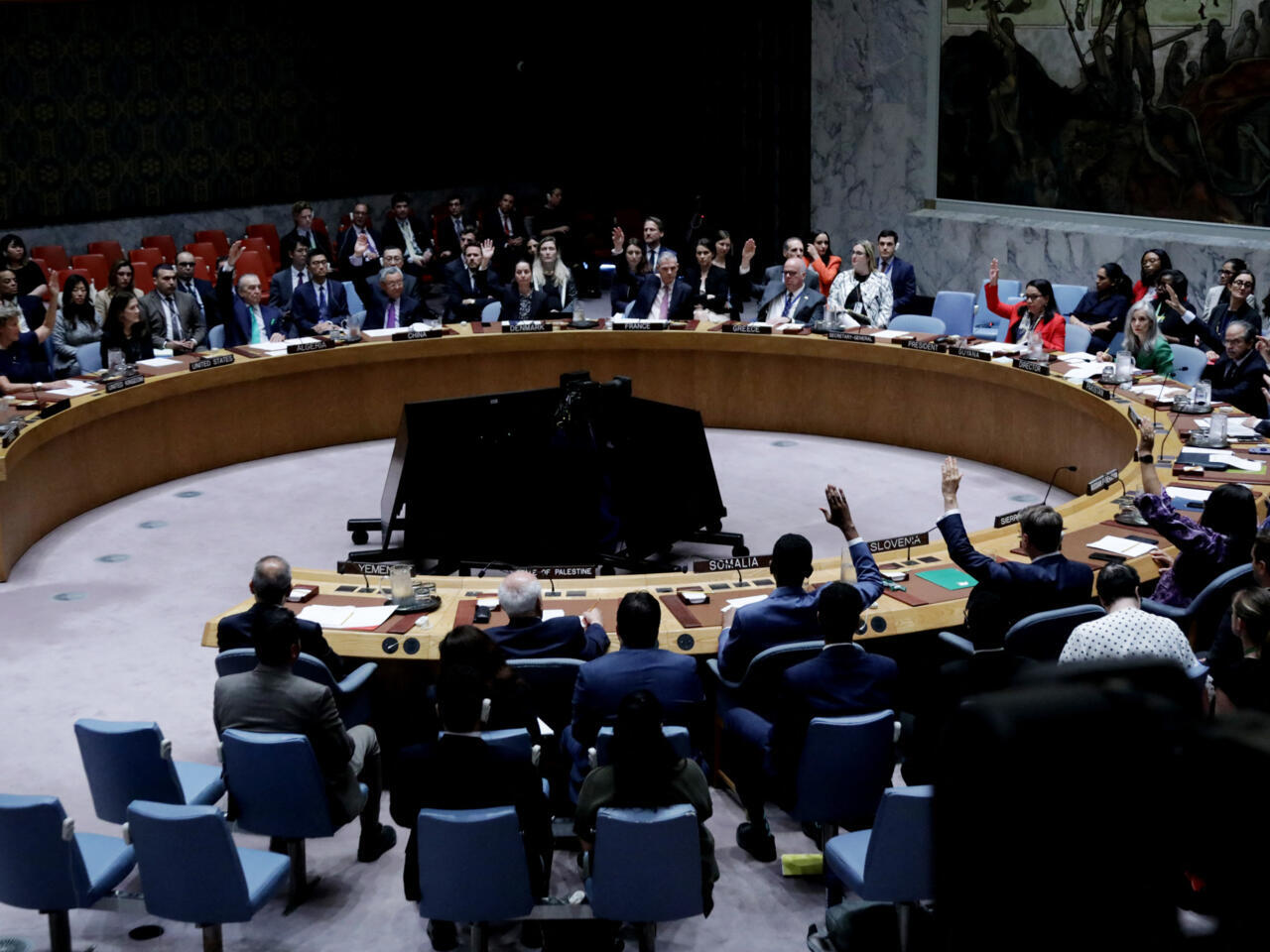US Vetoes UN Security Council Resolution Calling for Gaza Ceasefire
On September 18, 2025, the United States vetoed a United Nations Security Council resolution calling for an immediate, unconditional ceasefire in Gaza, despite overwhelming support from other Council members.

The United States on Thursday, September 18, 2025, vetoed a United Nations Security Council draft resolution that called for an immediate, unconditional, and permanent ceasefire in the Gaza Strip. The resolution, submitted by the ten non-permanent members of the Council, received support from 14 of the 15 members, with only the US voting against it. The draft urged all parties to respect the ceasefire and demanded that Israel immediately lift all restrictions on humanitarian aid entering Gaza, emphasizing the need for safe and unhindered distribution of aid and restoration of essential services throughout the territory.
Overwhelming Support and US Opposition
The resolution was co-sponsored by Pakistan, Panama, Algeria, the Republic of Korea, Denmark, Slovenia, Sierra Leone, Somalia, Guyana, and Greece. Denmark’s Permanent Representative to the UN, Christina Lassen, spoke on behalf of the co-sponsors, highlighting the catastrophic situation in Gaza and urging the Council to fulfill its responsibility to maintain international peace and security. The Republic of Korea’s ambassador, presiding over the Council, noted the historic significance of the meeting, coinciding with the 10,000th session of the Council and the 80th anniversary of the UN’s founding.
Despite broad international backing, the US exercised its veto power, marking the sixth time it has blocked a Gaza-related resolution since October 2023. US representatives argued that the resolution failed to condemn Hamas and could undermine ongoing ceasefire negotiations mediated by the US, Egypt, and Qatar. The US position drew criticism from other Council members and humanitarian organizations, who stressed the urgent need for a ceasefire and unrestricted aid access amid worsening famine and civilian suffering in Gaza.
Palestinian and International Reactions
Palestine’s envoy to the UN, Riyad Mansour, condemned the US veto, describing the resolution as the "bare minimum that humanity, legality and morality dictate." Mansour warned that the veto prevented the Security Council from protecting civilians facing genocide and called for decisive international action outside the Council to deter further violence. He emphasized that there is no justification for killing civilians and urged an immediate halt to the conflict, stating that shielding Israel from accountability would only prolong the suffering and instability in the region.
International media and observers noted the near-unanimous support for the resolution, with only the US standing in opposition. Al Jazeera reported that the US veto does not serve the people of Gaza and highlighted the diplomatic isolation of the US on this issue. The UN’s official news service underscored the resolution’s demand for the unrestricted flow of humanitarian aid and the immediate release of hostages, reflecting the dire humanitarian situation on the ground.
Implications for Gaza and the UN
The veto has significant implications for both the humanitarian crisis in Gaza and the credibility of the Security Council. The blocked resolution would have mandated the lifting of Israeli restrictions on aid and called for the restoration of essential services, measures seen as vital for alleviating the suffering of Gaza’s civilian population. The repeated use of the US veto has fueled frustration among Council members and humanitarian advocates, who argue that the Security Council is failing to uphold its mandate to maintain international peace and security.
Looking ahead, Palestinian representatives indicated that the issue would dominate discussions at the upcoming General Assembly, with calls for increased international pressure and action outside the Security Council. The event has intensified global scrutiny of US policy on the Israel-Hamas conflict and raised questions about the effectiveness of multilateral diplomacy in addressing urgent humanitarian crises.